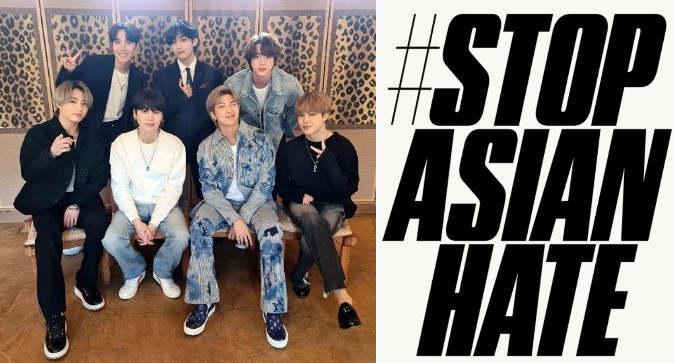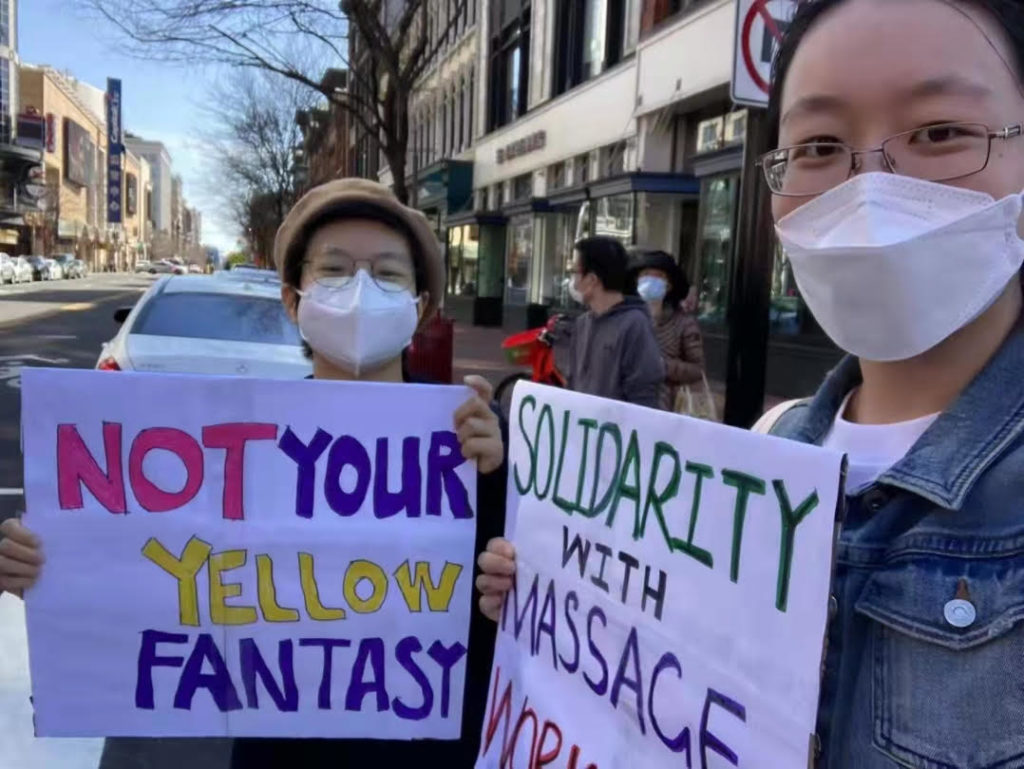
To call BTS a global phenomenon is an understatement. If you are unfamiliar with the boy band from South Korea, a quick Google search reveals numerous headlines that document their record-breaking successes. As music artists, they have attained a number of accolades that signify their impact on music and as a collective of seven men, they have had great impact on social movements like Black Lives Matter and Stop AAPI Hate. It is this latter movement that reveals their symbolic status as successful Asians that have made it, by all definitions of Western musical success, in America. It is a success story that many Asian Americans, including myself, can relate to: the successes of Asian children validate the sacrifices of their parents. All too often these accomplishments in social, cultural, and political life erases the enduring trauma of hate and racism that Asians and Asian Americans continue to experience. This is most evident from the racist rhetoric about the coronavirus, the increase in hate crimes against Asian Americans, and the tragedy of the Atlanta shootings. This new political reality calls for a new collective awakening that dismantles the Western definition of success and the antiquated model minority myth.
Bangtan Sonyeondan or BTS, the globally recognized moniker, is a seven-member boy band from South Korea. If you ask fans or ARMYs what BTS means to them, answers vary from the impact of their music to the joy of their non-musical content that perhaps figures in fans’ real lives cannot produce. This is not just because the seven members are representative of the age group of their fans but also their telepathic understanding of their fans’ wants and likes from them as musicians and entertainers. That communication explains their global success, an accomplishment that many artists, Korean or Western, only hope to achieve in their musical careers. Furthermore, BTS has inspired social change with their messages against prejudice and violence. In June 2020, at the height of the racial protests over the murder of George Floyd, the septet donated $1 million US dollars to Black Lives Matter, which was later matched by their fans. Since 2017, the band has partnered with UNICEF for their LOVE MYSELF campaign to stand against hate directed towards youth and promote love. That social power is significant, and in a global world with arbitrary borders, BTS are model and productive global citizens. Thus, BTS transcends their significance as musical talent and can be reimagined as symbols for the Asian American experience.
For some Asian Americans, cultural and social expectations of success are high because something is always sacrificed for it. My parents gave their all to give my sisters and I the best opportunities, and we took them to excel and succeed. By a Western definition of success, many Asian Americans have made it: they are doctors, lawyers, scientists and other white-collar occupations with multiple higher education degrees. This proximity to whiteness is the Achilles’ heel: Asian Americans are conveniently white and non-white. For example, the model minority myth perpetuates a harmful image of Asians as academically superior with great musical capabilities. It erases differences across nationalities within the Asian American category and creates a monolithic image of Asian Americans. When an Asian individual lives up to this stereotype, they become the model Asian American for all others and more importantly, for white Americans to ignore their racism and prove the American Dream is alive and well.
On the dark side of this coin is the history of anti-Asian racism reveals a record of otherizing and dehumanizing Asians. Stereotypes about Asians were anchored in the image of disease carriers with questionable morals and intellectual inferiority to support narratives that they would degrade racial and social purity in the United States. These stereotypes are reproduced today in the rhetoric of Kung-Flu and China Virus. Unsurprisingly, as these narratives were espoused by political leaders, hate crimes against Asian Americans increased by 169%. This unchecked racism culminated in the violent and racist attack on massage parlors in Atlanta, Georgia where six of the eight victims were of Asian descent. Therefore, Asian Americans simultaneously approximate whiteness and occupy racial imaginations.
BTS represents this in-between: as artists, their musical successes exceed all Western standards and expectations, and as Asians, they still face prejudice for their identities. They shared this reality in a group statement against the number of increasing violent incidents against Asian Americans. This straddling between two racial categories is an issue because it erases experiences of hate and racism for Asians. On the one hand, the proximity to whiteness almost offers relief from experiencing racism. If you succeed, then you can escape experiencing hate. On the other hand, Asian American experiences of racism are not too serious until it becomes too much in terms of the number of reported cases and in degree of violence. At the center of these determinations are familiar systems that dictate the American experience for minority individuals, that distinguish between the fortunate and less fortunate. Therefore, Asian Americans should follow BTS’s lead and show solidarity and community with other minority groups that are oppressed under the same systems.
(By Michelle Nguyen)
(Photo credit: Hype)

